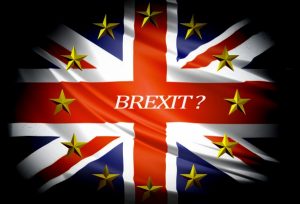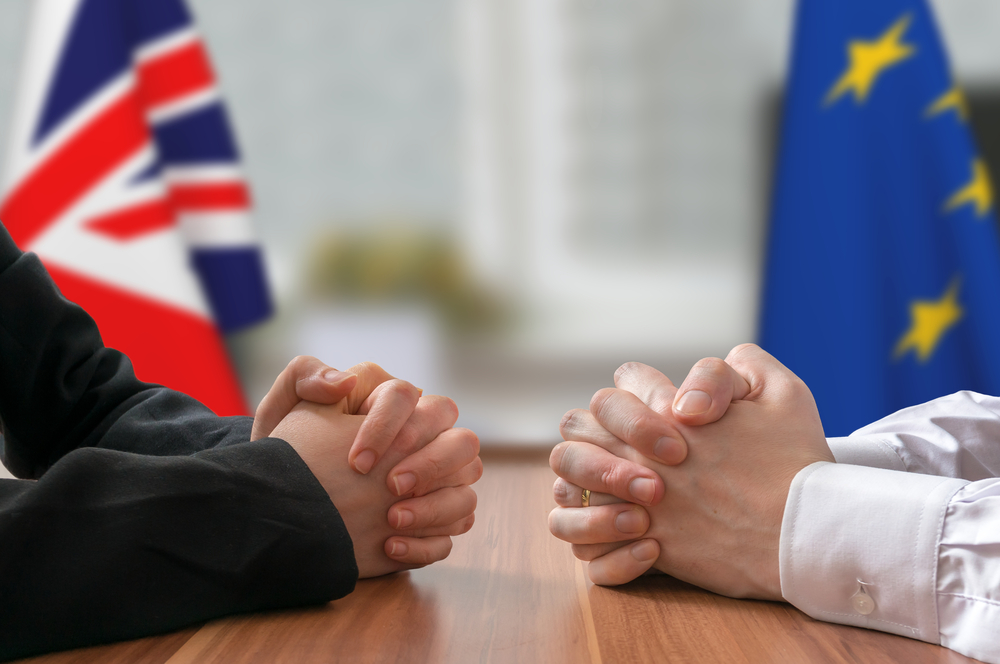So What’s Happened Since We Triggered Article 50?
In a 585-page withdrawal agreement, the U.K. and the EU have come up with a plan for our country to exit the union gracefully. The agreement covers some basic issues, ranging from how much the U.K. owes the EU for leaving ( £39bn, if you were curious!), and the fate of U.K. citizens currently residing in the EU, and vice-versa. The agreement also covers how to avoid a return of a physical border in Northern Ireland.
In a separate statement (much shorter at 26 pages), both the U.K. and the EU have drawn up plans regarding their future relations with another, giving everyone a preview of our country’s long-term relationship with the EU.
These agreements were agreed upon by the U.K. cabinet on November 14th, 2018, although not without controversy, with two senior cabinet members, such as Brexit Secretary Dominic Raab, resigning over their dissatisfaction with the agreement. There was also an attempted, albeit unsuccessful, attempt by Pro-Brexit MP’s to force a confidence vote against Prime Minister May.
Both parliaments from the U.K. and the EU are set to sign the deal in a summit on November 25th, 2018. Beyond this, both parliaments are expected to ratify the agreement prior to March 29th, 2019, the official Brexit Day.
What Happens After March 29?
 After the U.K. officially leaves the E.U., there will be a transition period from Brexit Day up to December 31st, 2020 (or later, depending on whether or not the U.K. or the EU or both ask for an extension) wherein business and other organizations are given time to prepare their operations for the enforcement of post-Brexit rules between the U.K. and the EU.
After the U.K. officially leaves the E.U., there will be a transition period from Brexit Day up to December 31st, 2020 (or later, depending on whether or not the U.K. or the EU or both ask for an extension) wherein business and other organizations are given time to prepare their operations for the enforcement of post-Brexit rules between the U.K. and the EU.
This also gives both governments time to hammer out the finer details of their new relationship, such as trade, immigration, travel visas, among others. As part of the agreement, the EU will retain free movement of goods and people during the transition period; in exchange, the U.K. will be able to create its own trade deals outside the purview of the EU (which will come into force on January 1, 2021).
All of this is, of course, only possible IF both parliaments are able to come to a mutually-agreement regarding the Brexit deal.
As for other long-term effects, such as mutual security, trade, and travel, the future is uncertain. Although the 26-page statement does allow both sides to hope for a mutually-beneficial post-Brexit relationship.
Seems Like Everything is in Order! But Wait, How Have We Fared As A Nation Since Voting to Leave the European Union?
Despite the doom-and-gloom predicted by senior members of the previous government (such as then-Prime Minister David Cameron, Chancellor George Osborne, and other high-ranking officials who voted to Remain), the United Kingdom has seen a period of moderate growth.
 Prior to the Brexit vote, the previous government had predicted an immediate and catastrophic economic crisis that would see U.K. revert to a third-world nation. However, despite a brief (albeit heart stopping) slump the day after the referendum, the pound remains a strong world currency, although, as of November 2018, it is 10-15% down against the US Dollar and the Euro, but analysts say that this is still well-within reason.
Prior to the Brexit vote, the previous government had predicted an immediate and catastrophic economic crisis that would see U.K. revert to a third-world nation. However, despite a brief (albeit heart stopping) slump the day after the referendum, the pound remains a strong world currency, although, as of November 2018, it is 10-15% down against the US Dollar and the Euro, but analysts say that this is still well-within reason.
Another nail in the coffin of Cameron’s prediction is the continued growth of the British economy: 1.8% growth in 2016, an impressive figure and second only to Germany and other G7 nations. 2017 also saw the economy growing at the same rate, although this slowed down by 0.6% in 2018.
As for inflation, it rose after the referendum but has stood at 2.2% since then, which is well-within acceptable levels of inflation (what economists call the “sweet spot” for economic growth). Unemployment has also gone down to 4%, the lowest it has been in 43 years. House prices, too, have fallen from 8.2% in June of 2016 to 3% in August of 2018, the lowest it has been in over 5 years.
In short: the U.K. economy has done fine, if not vey well, since the referendum. However, whether or not this is the effect of investor’s confidence in Brexit remains to be seen.
But Wait, What About the Laws that the EU Enforces in The U.K.?
The Conservative government introduced the European Union (Withdrawal) Bill to Parliament to end the primacy of EU law in the UK on Brexit Day. This “Great Repeal Bill”, as it was originally called, incorporates all EU legislation into UK law in one lump, after which the government will decide over a period of time which parts to keep, change or remove. The bill was subject to fierce debate as it passed through Parliament, with a number of attempts to change its wording. It finally became law in June 2018.
Part of the EU-U.K. agreement is a Conservative Party-backed bill called the European Union Withdrawal Act. Enacted in June of 2018, this Act of Parliament is designed to “cut off the source of EU law in the UK… and remove the competence of EU institutions to legislate for the UK.” and will take effect on Brexit Day. The Act, however, was not without controversy: fierce debates erupted over the exact wording of the law, with numerous attempts being set forward by MP’s from both sides.
In this law, all EU legislation currently enforced in the country will be incorporated into U.K. law in one fell swoop. Once this is accomplished, government can then decide, over a period of time, which laws they are willing to keep, remove, or change.
Where Does Our Prime Minister Stand on this Whole Brexit Thing?
 During the referendum, current Prime Minister Theresa May (then-Home Secretary) backed up David Cameron’s charge AGAINST Brexit, citing the U.K.’s economic benefit of being a member-state of the European Union. However, after taking over as Prime Minister, she switched gears and triggered Article 50 of the Lisbon Treaty, kick-starting the 2 year process of leaving the EU. This, she says, is in response to the will of the people, with her key message being “Brexit means Brexit”.
During the referendum, current Prime Minister Theresa May (then-Home Secretary) backed up David Cameron’s charge AGAINST Brexit, citing the U.K.’s economic benefit of being a member-state of the European Union. However, after taking over as Prime Minister, she switched gears and triggered Article 50 of the Lisbon Treaty, kick-starting the 2 year process of leaving the EU. This, she says, is in response to the will of the people, with her key message being “Brexit means Brexit”.
Rather than focusing on going against Brexit, Prime Minister May has been busy negotiating terms and goals alongside EU Council President Donald Tus. In a speech in Florence, Italy during the EU27 , Prime Minister May outlined plans for a transition period that would help both sides ease into a post-Brexit relationship in a mutually beneficial way.
What is the Labour Party’s position on Brexit?
Labour says it accepts the referendum result and that Brexit is going to happen. But it opposes Theresa May’s Brexit plan, and wants to stop it and force a general election. If, however, it stops the PM’s plan and there is no general election it says the option of a new referendum would be on the table.
Leader Jeremy Corbyn says he would negotiate a permanent customs union with the EU after Brexit, which would be very similar to the one it has now. This is the only way to keep trade flowing freely and protect jobs, he says, as well as ensuring there is no return to a “hard border” in Northern Ireland. He has ruled out staying a member of the single market, as some of his pro-EU MPs want, so he can carry out his plans to nationalise key industries without being hampered by EU competition rules. He says the UK should have a very close relationship with the single market. Labour accepts that some form of free movement of people might have to continue. Labour’s shadow foreign secretary Emily Thornberry says Labour should seek to delay Brexit by extending the Article 50 period, if it wins power in a general election before 29 March.
The Future: Post-Brexit
While it’s too early to say exactly what will happen to the country after it leaves the European Union, there is enough information at hand to make a small prediction: given the current economic trend and barring any government mismanagement and/or political or environment disasters, I personally think that the U.K. can successfully navigate a post-Brexit world. While it’s understandable that many people would feel that leaving a union with our European neighbors is regrettable, the current situation is telling me that it might not be so bad after all. In fact, if we do it right, it might even be beneficial to everyone involved.
What do you think about the current Brexit situation? Leave us a comment below!
